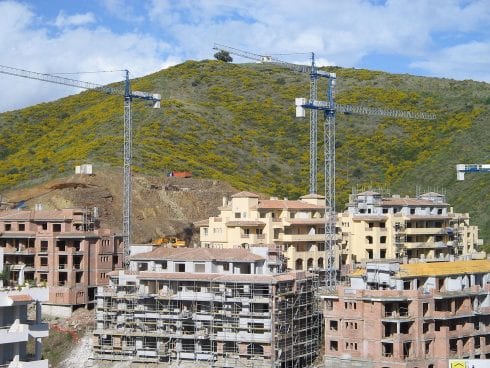By James Bryce
Spain’s battered economy faces ‘considerable’ risks despite a robust response to the crisis, according to the International Monetary Fund (IMF).
Spain faces grave economic risks if it fails to crack down harder on spending, shake up the financial sector and improve the labour market, the IMF said.
The warning comes after 200,000 Spaniards took to the streets to protest austerity measures and unemployment.
“The repair of the economy is incomplete and the risks are considerable,” the Washington-based IMF said in a report summarising a review of Spain’s economy by its analysts.
In the short term, investor fears about sovereign risk in the euro zone could grow, raising the costs for Spain to borrow money from the financial markets, it added.
In the medium term, Spain risks a long, slow recovery and continued high unemployment.
“In this scenario, domestic headwinds could intensify, creating a downward cycle of falling house prices, slower bank balance sheet repair, and faster household and corporate de-leveraging. “Combined with potentially unresponsive labor costs, this could undermine employment growth.”
Spain’s economic crisis, triggered by the 2008 property bubble collapse and the international financial crisis, sent the unemployment rate soaring to 21.29 per cent in the first quarter of 2011.
The government and central bank have pushed through a ‘strong and wide-ranging policy response’ over the past year, helping to rebalance the economy, the IMF said.
Earlier this month, Spain’s government agreed to back a bill freeing up the collective bargaining system, part of a slew of hotly debated labour reforms that include cutting the cost of firing workers.
The government has also enacted measures to strengthen bank balance sheets, cut state spending, raise the retirement age and sell off state assets including the national lottery.
But the IMF said the reform agenda remained “challenging and urgent”, with underlying problems such as weak productivity growth and a “dysfunctional labour market” yet to be fully addressed.
“Combined with the risks to the outlook, this means that the reforms to date need to be strengthened,” it said.
The IMF criticised a lack of transparency in semi-autonomous regions’ deficit reporting, and called for a strict application of Madrid’s deficit rules on wayward regional governments.
For the medium term, it also urged a “nationwide comprehensive review” of major spending programs.
Despite “far-reaching” action by Madrid, markets were still nervous about Spain’s banking system and doubtful about whether real estate losses were being fully recognized, the IMF said.









everyone who lives here, can indeed count to three knows that the doodoo is just waiting to hit the fan ……
Spanish productivity (in its 3rd or 4th generation now) is greatly reduced to filling out formularios to get subsidies and then split up the gains within family and Tio’s …..
La cuenta
Adios Euro – Hola Peseta
Wonder how much a cerveza will be after Spain’s real money is back ?? Used to be 100 Pesetas
The solution as they seem to see it ,is put everything up and fine as many people as you can .Why not cut social security so that more people can be employed and put a boot up the town halls to move along sinple permissos ,or get rid of some so that work can be stimulated The only thing that has speeded up is the time it takes to reposess peoples homes